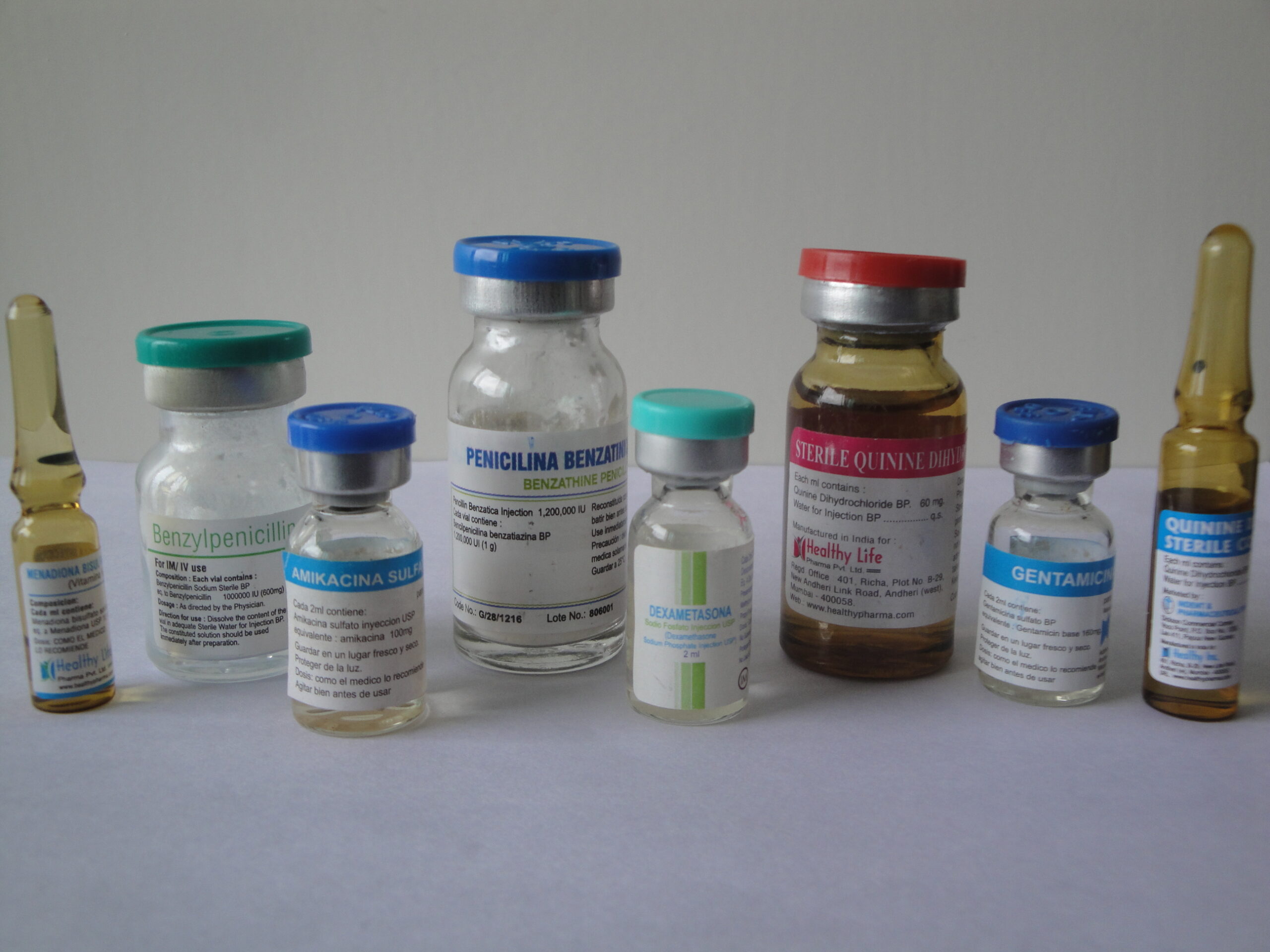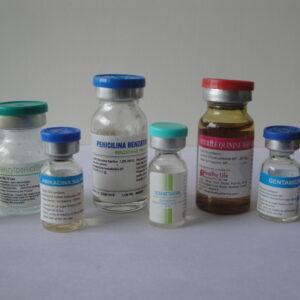Description
RANITIDINE INJECTION
Ranitidine injection, which adheres to the standards set by the Indian Pharmacopoeia (I.P.), is typically used for various medical conditions where the rapid and reliable suppression of stomach acid is necessary. Here are some common usages of Ranitidine Injection I.P.:
Peptic Ulcers: Ranitidine is often used to treat peptic ulcers, which are open sores that develop on the inner lining of the stomach or the upper part of the small intestine. By reducing stomach acid production, ranitidine helps promote healing of the ulcers.
Gastroesophageal Reflux Disease (GERD): GERD is a chronic condition where stomach acid flows back into the esophagus, causing irritation and inflammation. Ranitidine can help alleviate symptoms such as heartburn and acid regurgitation.
Zollinger-Ellison Syndrome: This is a rare condition where tumors in the pancreas or duodenum cause overproduction of stomach acid. Ranitidine may be used to manage excessive acid secretion in individuals with this syndrome.
Stress Ulcer Prophylaxis: In critically ill patients or those undergoing major surgery, stress ulcers can develop due to factors like reduced blood flow to the stomach lining. Ranitidine may be administered to prevent the formation of stress ulcers.
Erosive Esophagitis: This condition involves inflammation and damage to the lining of the esophagus, often caused by stomach acid. Ranitidine can help in the healing process by reducing acid production.
Zinc Poisoning: In some cases of zinc poisoning, ranitidine may be used to reduce stomach acid production, aiding in the treatment of this specific type of toxicity.
It’s crucial to note that the specific usage and dosage of Ranitidine Injection I.P. should be determined by a healthcare professional based on the patient’s medical condition, history, and other factors. Additionally, as mentioned earlier, it’s important to be aware of any updated information or warnings related to ranitidine, given the concerns about impurities that were raised in the past. Always consult with a healthcare provider for personalized advice and the most current information.
Ranitidine injection, like its oral counterpart, is primarily used to reduce the production of stomach acid. It belongs to a class of medications known as H2 blockers, and it works by blocking the action of histamine on the stomach cells, which reduces the amount of acid they produce. Here are some common usages of Ranitidine Injection I.P.:
Gastroesophageal Reflux Disease (GERD): Ranitidine injection may be used to treat GERD, a condition where stomach acid flows back into the esophagus, causing symptoms like heartburn and irritation.
Peptic Ulcers: It is often prescribed to heal and prevent the recurrence of peptic ulcers in the stomach or duodenum. Peptic ulcers are open sores that develop on the inner lining of the stomach or the upper part of the small intestine.
Zollinger-Ellison Syndrome: This is a rare condition where tumors in the pancreas or duodenum cause excessive production of stomach acid. Ranitidine can help manage the acid levels in such cases.
Stress Ulcer Prophylaxis: Ranitidine may be used in hospital settings to prevent stress ulcers in critically ill patients, particularly those admitted to intensive care units.
Erosive Esophagitis: Ranitidine can be used to treat erosive esophagitis, which is inflammation and damage to the esophagus caused by stomach acid.
Aspiration Pneumonitis: In certain cases, ranitidine may be used to reduce the risk of acid-related complications during anesthesia and surgery to prevent aspiration pneumonitis.
It’s important to note that the usage and dosage of ranitidine should be determined by a healthcare professional based on the specific medical condition of the patient. Additionally, as mentioned earlier, it’s crucial to stay updated on the latest information regarding ranitidine due to previous concerns about potential impurities in some formulations. Always consult with a healthcare provider for personalized advice and information based on the latest medical guidelines.
Ranitidine injection is typically used in medical settings to provide rapid relief from conditions associated with excess stomach acid. Here are some common usages of Ranitidine Injection I.P.:
Peptic Ulcers: Ranitidine is often used to treat peptic ulcers, which are open sores that develop on the inside lining of the stomach or the upper part of the small intestine. By reducing stomach acid production, ranitidine helps promote the healing of these ulcers.
Gastroesophageal Reflux Disease (GERD): GERD is a chronic condition where stomach acid flows back into the esophagus, causing irritation and discomfort. Ranitidine can be administered intravenously in severe cases to quickly alleviate symptoms.
Zollinger-Ellison Syndrome: This is a rare condition where tumors in the pancreas or duodenum cause excessive production of stomach acid. Ranitidine may be used as part of the treatment plan to reduce acid levels.
Stress Ulcer Prophylaxis: In critically ill patients or those undergoing major surgery, there is an increased risk of stress-related ulcers. Ranitidine injection may be used prophylactically to prevent the development of these ulcers.
Erosive Esophagitis: Ranitidine can be administered intravenously to treat erosive esophagitis, a condition where the lining of the esophagus is damaged by stomach acid.
It’s important to note that the use of ranitidine has been associated with concerns about the presence of an impurity called N-nitrosodimethylamine (NDMA). As of my last knowledge update in January 2022, several health regulatory agencies had issued recalls and advisories related to ranitidine products due to these concerns. Therefore, it’s crucial to consult with a healthcare professional and stay updated on the latest information and recommendations from health authorities regarding the use of ranitidine or alternative medications for acid-related conditions.



